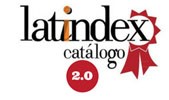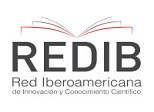Proposal for a Training Course in Technological Tools for Notary Professionals
Keywords:
professionals, notary, technological tools, training courseAbstract
Information technology development has become a necessity for all institutions globally, a challenge that notarial services round the world must face to offer citizens more accessible and secure legal services, with facilities for the exchange of information between entities, strengthening self-management and the control function. This is why professionals in the various notarial areas must be able to skillfully apply all technological tools. With the objective of designing a methodological proposal for a training course for professionals who work in the six notaries of the Esmeraldas canton, in the Ecuadorian province of the same name, a mixed study with a descriptive approach was carried out. The sample selected by strata comprised the six notaries of the canton and 51 professionals. A survey of 12 closed questions was applied to measure professionals' knowledge level and use of technological tools in the notarial field; a semi-structured interview with the notaries; and a documentary study to scientifically and methodologically substantiate the course proposal presented. The results show that professionals feel the lack of adequate training, some platform compatibility problems, and difficulties with the technical support everyone needs, confirmed in the interviews with the notaries. The proposal for a training course was designed and it is concluded that the Public Administration of the Esmeraldas canton must centralize this teaching as continuous training for the six notary offices at the same time, giving update workshops every time new technological tools emerge.
References
Cabascango Maldonado, J. P., & Enríquez Sánchez, G. E. (2022). Incidencia de las Tecnologías de la Información y Comunicación en la Gestión Pública (Tesis de grado. Universidad Politécnica Estatal del Carchi. http://181.198.77.137:8080/jspui/handle/123456789/2164
Consejo de la Judicatura. (2021). Resolución 001-2021. https://www.funcionjudicial.gob.ec/resources/pdf/resoluciones/2021/001-2021.pdf
García Jerez, F.A., & Martínez Basallo, S.P. (2021). Intimidad burocrática: precarización laboral, clientelismo y sentido del trabajo en el estado colombiano. Cali: Programa Editorial de la Universidad del Valle. https://scholar.google.com/citations?view_op=view_citation&hl=es&user=NgnpHvUAAAAJ&citation_for_view=NgnpHvUAAAAJ:blknAaTinKkC
Hernández-Sampieri, R., & Mendoza Torres, C.P. (2018). Metodología de la investigación: Las rutas cuantitativa, Cualitativa y mixta (1ra ed.). McGraw-Hill Interamericana Editores, S.A.
Ley Notarial. (8-XII-2020). Asamblea Nacional. Decreto Supremo No. 1404. https://www.funcionjudicial.gob.ec/lotaip/documentosdirecciones/comunicacion/LEY%20NOTARIAL.pdf
Ley Orgánica para la Transformación Digital y Audiovisual. (2023). Asamblea Nacional. Tercer Suplemento Nº 245 - Registro Oficial. https://www.gobiernoelectronico.gob.ec/wp-content/uploads/2023/02/7e52b3d7-0ba5-4c58-a474-00e19fcbe127.pdf
Maraboli, A. (2021). Miradas de la gerencia pública desde la actualidad. Mayéutica Revista Científica de Humanidades y Artes, 9(1), 63-74. https://revistas.uclave.org/index.php/mayeutica/article/view/3072
Mori Custodio, K. R. & Palomino Vilchez, P. F. (2021). Desarrollar un sistema de firma digital que facilite el firmado de documentos de una entidad pública (Tesis de grado. Universidad Ricardo Palma). https://hdl.handle.net/20.500.14138/4868
Ocampo León, C. (2020) Análisis Jurídico del problema del Sistema Nacional de Contratación Pública sobre la contraposición entre la Ley Orgánica del Sistema Nacional de Contratación Pública (LOSNCP). El reglamento General del Sistema Nacional de Contratación Pública (RGLOSNCP), El Código Orgánico Administrativo (COA), y las Resoluciones Emitidas por el Servicio Nacional de Contratación Pública (SERCOP)(Tesis de Grado. Universidad Católica de Cuenca). https://dspace.ucacue.edu.ec/handle/ucacue/12128
Ortegón Cortázar, L. G. (2023). Notarias digitales: impacto de la transformación digital en el control y gestión del servicio público notarial en Colombia (Tesis doctoral. Universidad de Valencia). Ciencias Tecnológicas. https://hdl.handle.net/10550/85521
Reinoso, Y., & Pincay, D. (2020). Análisis de la ejecución presupuestaria en el Gobierno local Municipal del Cantón Simón Bolívar . 593 Digital Publisher CEIT, 5(2), 14-30. https://doi.org/10.33386/593dp.2020.2.162
Reyes Hernández, M. M. (2020). Firma electrónica: un enfoque diferente. Perfiles de las Ciencias Sociales, 7(14). https://revistas.ujat.mx/index.php/perfiles/article/view/3745
Salazar Viver, A. M. P. (2024). La era de la inteligencia artificial. Transformando el rol de los notarios. EBooks Editorial del Ecuador.
Vásquez Realpe, G. C. (2023). El principio de seguridad jurídica en la aplicación de exenciones por adecuación de conducta en el código orgánico administrativo (Tesis de grado. Universidad Técnica del Norte). http://repositorio.utn.edu.ec/handle/123456789/14962
Zapata Esquivel, N. M. (2021). La aplicación de herramientas tecnológicas en la atención al usuario en las notarías del Cantón Quito (Tesis de maestría. Instituto de Altos Estudios Nacionales). IAEN. http://repositorio.iaen.edu.ec/handle/24000/6051
Published
How to Cite
Issue
Section
License
Los artículos enviados a la Revista Científica Hallazgos21 deberán ser totalmente originales e inéditos.
Los autores son los responsables de los textos y las imágenes incluidas en los artículos y no necesariamente reflejan el pensamiento de la editorial o de la Pontificia Universidad Católica del Ecuador, Sede Esmeraldas (PUCESE).
Los autores disponen cederle a la Revista Científica Hallazgos21 todos los derechos inherentes para la edición, publicación y distribución o divulgación del mismo.
Se autoriza a las revistas firmantes de los acuerdos de Encuentros de Revistas Latinoamericanas para reproducir en parte o totalmente los artículos con la sola mención de la fuente claramente señalada.







